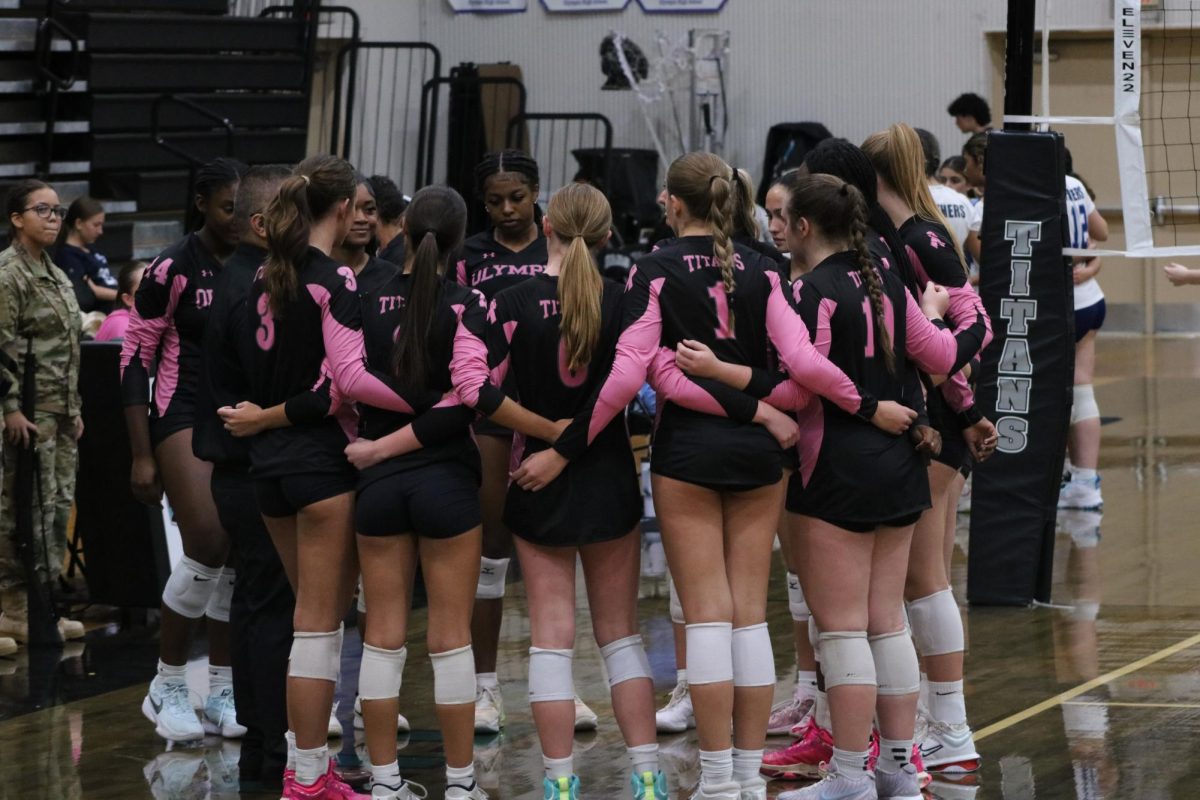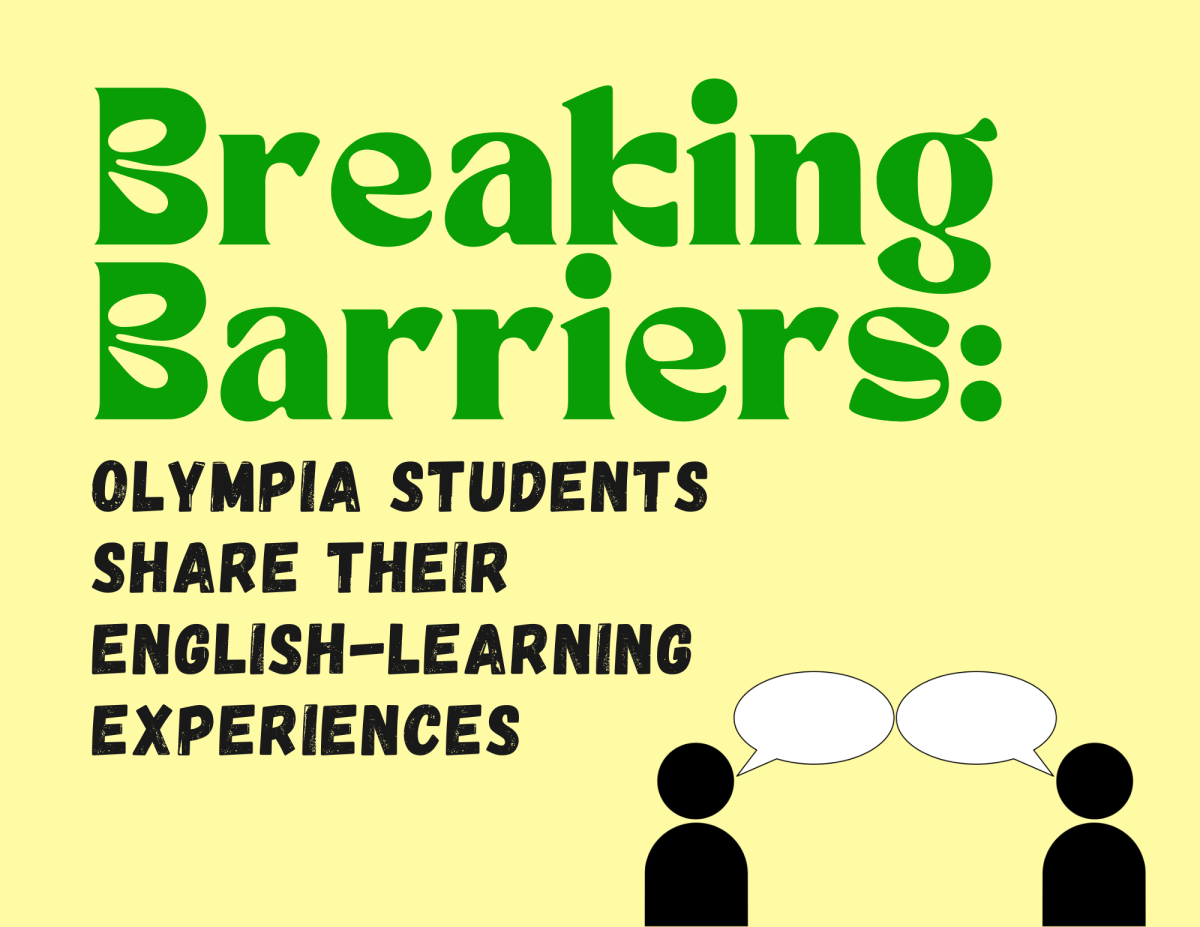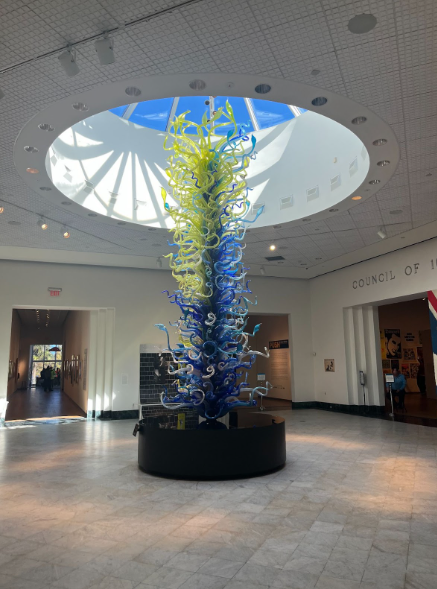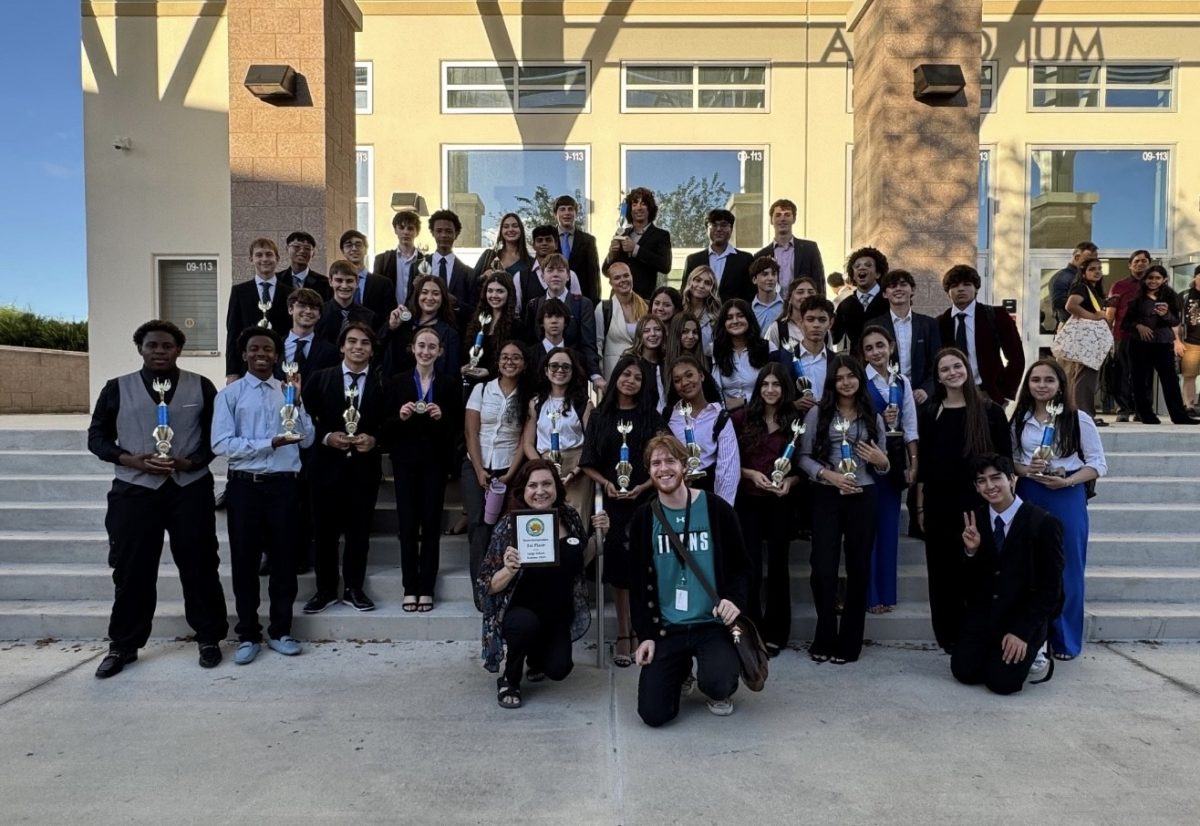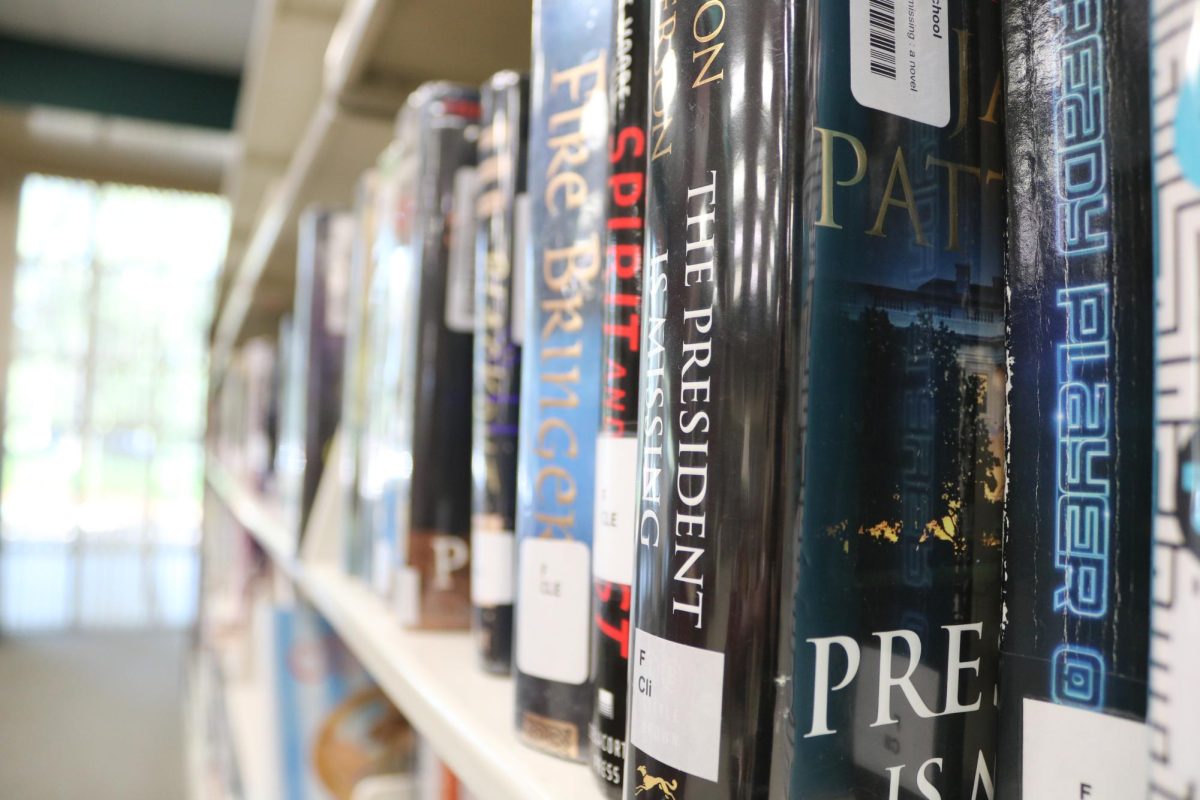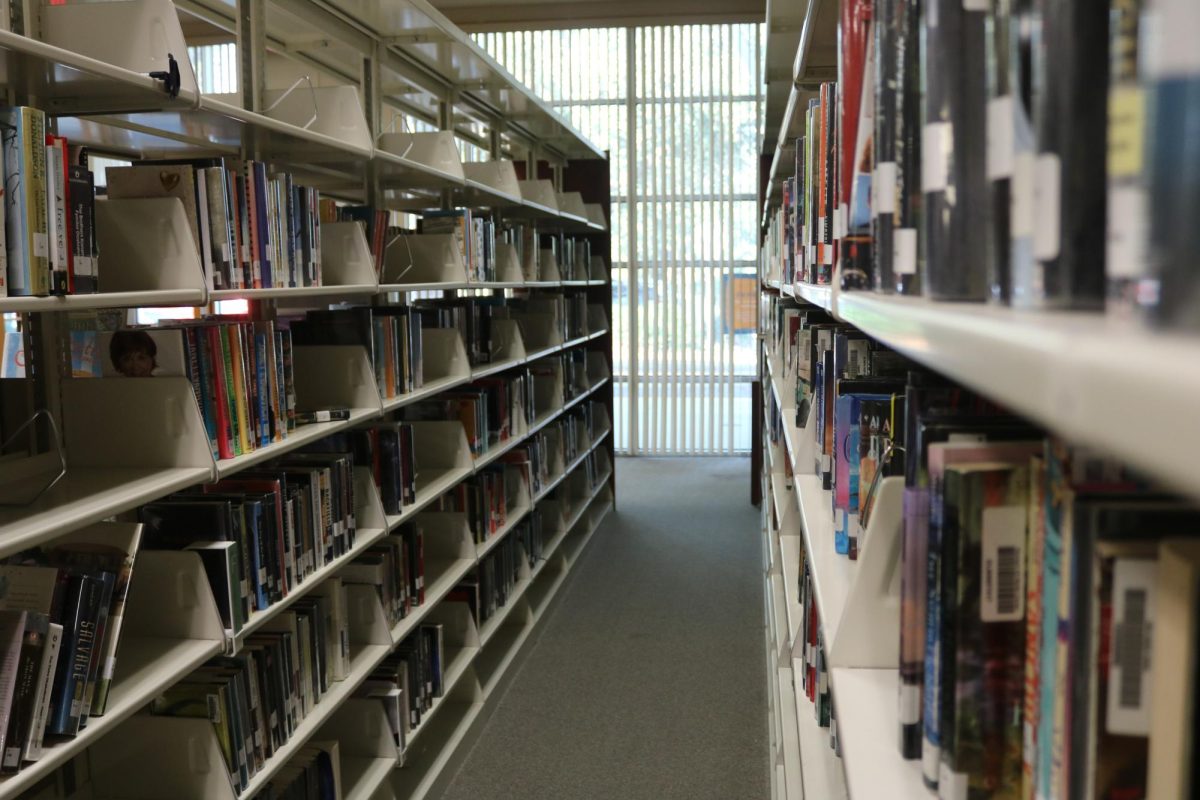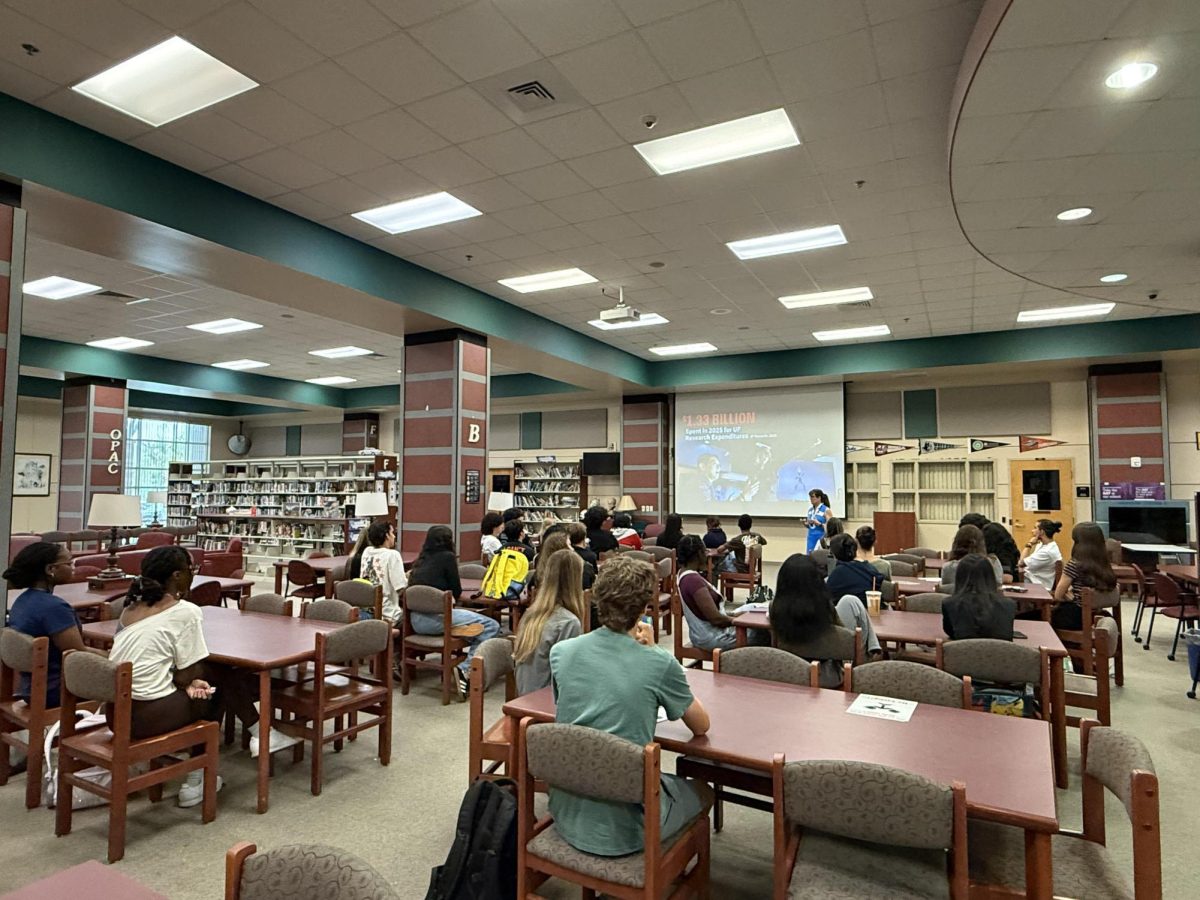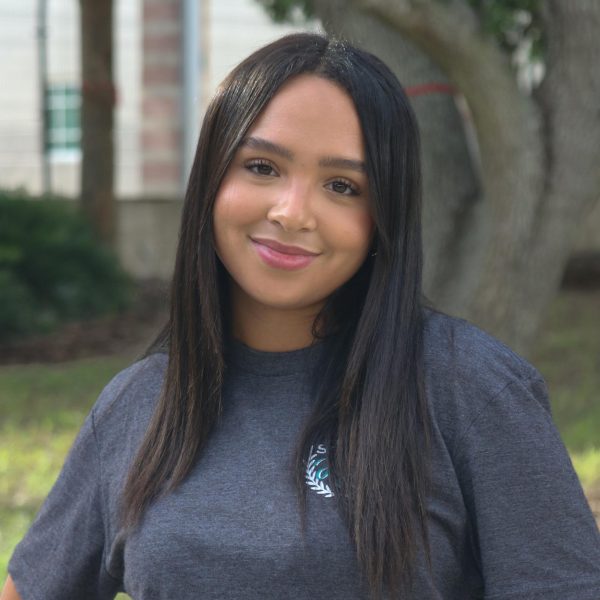At Olympia High School, many students face the challenge of learning English as a second language. For those who come from countries where Spanish is the primary language, adjusting to life in the United States can be tough, especially since in high school communication is key. Despite the hurdles, these students remain resilient, finding strength in their determination to succeed, supported by their peers and teachers.
For some students, like Miranda Di Marino,12th grade, who was born in the US to a Venezuelan family, the transition from a Spanish-speaking household to the English-speaking school was difficult at first. “When I first started, I didn’t understand much of what people were saying. It was overwhelming, and I felt embarrassed to speak up in class,” Di Marino explained. She was having a hard time since she was learning two languages at the time. However, over time, Di Marino became more comfortable. “Now, I still make mistakes, but I’m not afraid to try anymore,” she added with a smile.
Many of the students echoed similar experiences of struggling with the language barrier, but they also highlighted the importance of persistence. Santiago Perez, 12th grade, also from Venezuela, shared the different methods he uses to improve his English. “I watch movies and listen to music in English to practice,” he said. “Sometimes people speak too fast, and I miss some words, but I keep trying to catch up,” Perez continued. Just like many others, he faced moments of frustration, however, for Santiago, consistency is key. “The more I practice, the easier it gets,” he continued.
Adjusting to school life also came with challenges outside of just speaking the language. Valentina Rosales, a Venezuelan student, admitted that at first, she was afraid to speak in front of others. “I didn’t want to make mistakes or be judged, but little by little, I gained confidence. Now, my teachers are very patient with me, and I try to talk more,” she explained. Rosales also noted that her classmates have been very supportive, which made the transition even smoother. “If I don’t understand something, my friends always help me out,” she added.
In contrast, junior Isadora Montanini, who is from Brazil, faced her own unique set of challenges. “I felt isolated when I first arrived because I didn’t understand English very well, but as I started speaking more, I realized that language is not just about words. It’s also about connecting with people and understanding different cultures,” she declared. Montanini found that language wasn’t the only thing that mattered in communication—connection and personal relationships are essentials to truly be included.
For senior Diego Carrasquero, another Venezuelan student, learning English was crucial for fitting in. “I was afraid that my accent would make people think I wasn’t smart, but I’ve learned that people appreciate it when I try to speak. They’re supportive, and that helps me a lot,” he admitted. Diego also emphasized the importance of not giving up, no matter how many mistakes he made. “You have to keep pushing through and not let fear stop you,” he stated.
Lastly, senior Sofia Prepo, an exchange student from Argentina, talked about the balance between using her native language and learning English. “At first, I relied a lot on Spanish because it was easier, but I realized that to grow, I had to push myself to speak in English as much as possible,” she explained. Prepo, like the others, found that being surrounded by English speakers helped her learn faster. “It wasn’t always easy, but I’m proud of how much I’ve improved,” she uttered excitedly.

The stories of these students reflect the challenges and triumphs of those who are working to break through language barriers. They remind us that learning a new language is not just about mastering words but also about building confidence, adapting to a new environment, and embracing a new culture. With the support of teachers and friends, and a strong will to succeed, these students prove that persistence pays off—and that no barrier is too great to overcome.



